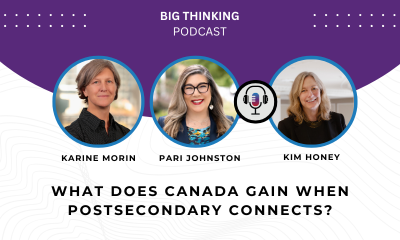Gardens, honeybees, pine trees – these were some of the more-than-human relationships discussed by a panel of scholars considering environmental humanities in Ukraine. The Canadian Association of Slavists convened Tanya Richardson (Wilfrid Laurier University), Darya Tsymbalyuk (Independent Scholar), Asia Bazdyrieva (Independent Scholar), Anna Olenenko (Khortytsia National Academy, Zaporizhzhia, Ukraine) and Iryna Zamuruieva (Independent Scholar) in a roundtable to discuss ways to develop environmental humanities in and about Ukraine at Congress 2022.
Ukraine has a longstanding narrative of being the ‘breadbasket of Europe.’ These conceptions depict Ukraine as an inexhaustible resource that can feed the world, or as a resource for others to extract and benefit from. This is a process known as ‘resoursification,’ which reduces Ukraine to geological, agricultural, or other forms of matter with usable material capacities. Ukraine, whether imagined as a transit country for Russian gas, or as a hub for development of alternative energy by Germany, is too often treated as a resource for other states to use for their own purposes.
The current war on Ukraine is not a one-off event, but a slow violence that reproduces itself through imperial infrastructures. The Russian war against Ukraine includes many crimes against the environment, as natural resources are seized in occupied areas. Natural reserves of pine trees that cannot survive anywhere else face shelling. Carpathian bees, a species already at risk from climate change, now approach an even more uncertain future.
For ecofeminists and scholars of the environmental humanities in Ukraine, there is a challenge that comes from being displaced from their homes and the land. In addition to personal experiences, there are numerous stories of family, friends, and colleagues whose relationships with land and nature have been drastically altered after having to shelter inside for extended periods. War has impacted not only Ukrainians’ ability to access spaces, such as forests or mines, but even the everyday ability to go outside without the fear of airstrikes.
It can be difficult to stay optimistic when you are displaced from your home and it is being constantly shelled or under never-ending fire, but there is resistance. Material resistance to this conflict comes first, but scholars of the energy humanities in Ukraine can come together, document what they are seeing, and collaborate with other thinkers, artists, or activists in interdisciplinary spaces. One way of resistance is through engaging with Ukrainian cultural space in the Ukrainian language, with other Ukrainian thinkers. There are challenges that come from working in Ukrainian and making your work legible in English, but we still must amplify the work being done in Ukrainian. The stories of Ukrainian experiences or commentaries are the ones to listen to and amplify in these times.
To close, the panelists and audience members shared thinkers and writings about environmental humanities in Ukraine they wished to amplify. You can look into many of their recommendations below.
- Victor Malerek
- Svitlana Matviyenko, Nuclear Cyberwar: From Energy Colonialism to Energy Terrorism
- Oleksiy Radynski, Is Data the New Gas?
- Volodymyr Vernadsky
- Kateryna Iakovlenko
- Kateryna Hrushevska
- Serhii Podolynsky
- Roman Adrian Cybriwsky, Along Ukraine's River: A Social and Environmental History of the Dnipro
- Adrian Ivakhiv

What does Canada gain when postsecondary connects?
← Big Thinking Podcast homepage Introduction | About the guests | Transcript | Follow us Introduction Canada’s future is being written in the places where people learn and in how those places connect. If collaboration holds the key to shaping that...

Canada's AI leadership calls for all expertise at the table
After bringing together humanities and social sciences AI experts for a consultation with the federal government’s AI Strategy Task Force on October 20, the Federation submitted the following on October 31. Written submission to the AI Task Force...

Building a strong research future with Budget 2025
On November 4, 2025, the federal government tabled its 2025 Budget: Canada Strong. Through its investment to attract international talent, this Budget recognizes the vitally important work of researchers. Notably, Budget 2025 commits $1 billion over...
